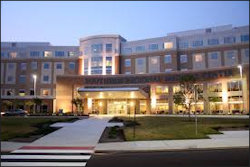Bon Secours Mercy Health, a regional Catholic hospital chain, recently acquired three Virginia hospitals — a 105-bed facility in the City of Franklin, and a 300-bed clinic in Emporia. Neither Bon Secours nor the seller, Tennessee-based Community Health Systems, released any information about the transaction other than the fact that it took place, so we can only speculate about the reasons driving the deal. But we do know one thing: The Virginia hospital industry is more concentrated today than it was before the deal.
The Virginia Health Information website provides some clues. For a “nonprofit” health chain, Bon Secours is very profitable. Its four hospitals in the Richmond metropolitan region generated more than $1.3 million in net patient revenue (real money, not charges that are inflated then discounted for insurers) and operating income of $132 million in the year ending August 2018. Bon Secours does not pay taxes on that sum or pay dividends to investors, so it”s free to reinvest all of it as it sees fit.
One option might be to say, gosh, we’re a nonprofit hospital serving a community mission. Why not reduce our charges to patients? But that wouldn’t match the ambitious corporate goal to grow the enterprise. In January the company announced that it had filed for regulatory permission to expand its Hanover hospital by 44 acute care beds. In December, the chain announced regulatory OK for a 55-bed expansion in its Chesterfield County facility. Then, of course, it purchased the four Southside hospitals.
Serving poor populations heavily dependent upon Medicaid and charity care, those facilities are ailing financially. The Petersburg hospital made only $2.8 million: an anemic profit margin of 1.5% (half of what is considered reasonable for a nonprofit hospital). The Emporia hospital lost $10.9 million and the Franklin facility lost $8.4 million. Their owner, Community Health Systems, is a for-profit chain and, one can conjecture, had given up on making them profitable. The good news of this story is that Bon Secours can use its operating profits to prop up the three ailing medical centers. That would be consistent with its nonprofit community mission.
Bon Secours Mercy CEO John Starcher was vague about the benefits of the merger, however. In a statement quoted by Virginia Business magazine, he said: “Southeastern Virginia is a rapidly growing area, and we look forward to continuing to invest in the health and well-being of area residents while ensuring our facilities are places where associates want to work, clinicians want to practice, people seek wellness and communities thrive.”
Not much in there about benefiting patients. We know so little because the hospitals don’t spell out the deal for us, and no one thinks to ask. Lawmakers don’t care to ask. First, these are 2018 numbers and did not reflect the influx of money from Medicaid expansion, which was justified on the grounds that poor urban and rural hospitals needed the financial boost in the arm. Thousands of patients who bills were written off as charity care or bad debts suddenly would be generating cash. Due to reporting delays, it will be a while yet before if the extra revenue kicked in as predicted. Evidently, the Medicaid-expansion surge did not come in time to save the three Southside hospitals.
Second, we should ask if the Bon Secours’ gambit represents a effort to increase market share. Presumably, the Southside hospitals dished off acutely ill patients whom they were not equipped to treat to tertiary care hospitals nearby — in Richmond, Newport News, Norfolk, and perhaps even Durham, N.C. Now that the hospitals are part of the Bon Secours network, will referrals be limited to the Bon Secours system? In other words, does this deal purchase patients with complex cases (and big bills) for the flagship St. Marys Hospital? Capturing referrals is the driving force behind many healthcare acquisitions. Maybe this is the optimal outcome for all concerned. But maybe not. And like so much of what happens in Virginia, no one is asking.



